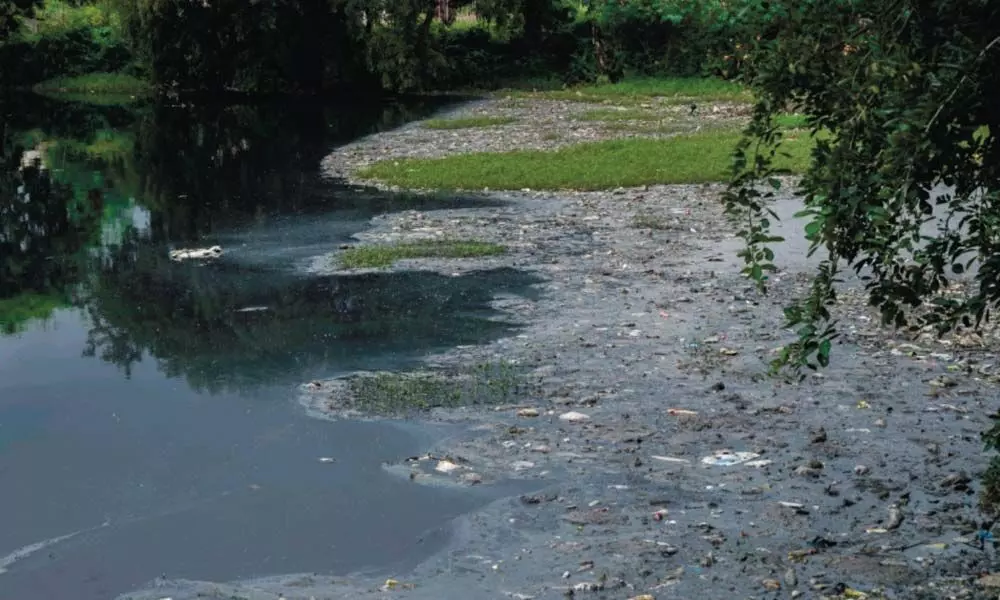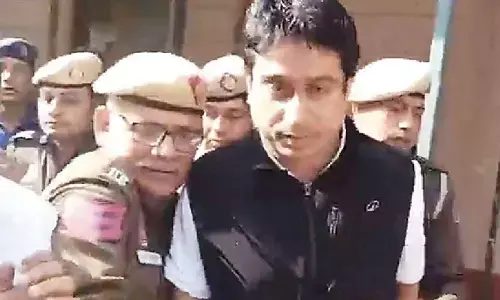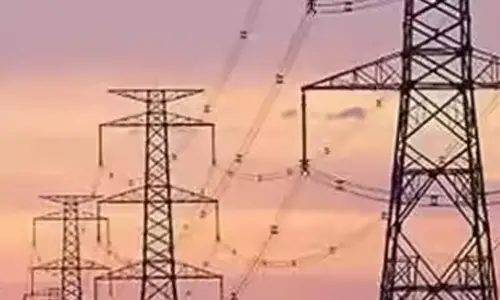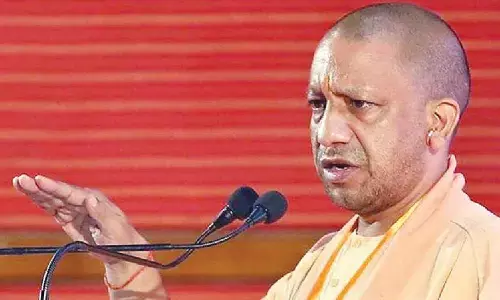Bengaluru: Industrial effluents, solid waste choke Yarandahalli Lake

Industrial effluents, solid waste choke Yarandahalli Lake
Yarandahalli Lake, next to Jigani -Bommasandra industrial area in Yarandahalli village under Hennagara Panchayat, Anekal Taluk is rainfed from its own independent catchment area
Bengaluru: Yarandahalli Lake, next to Jigani -Bommasandra industrial area in Yarandahalli village under Hennagara Panchayat, Anekal Taluk is rainfed from its own independent catchment area. Presently, the lake is critically polluted due to continuous flow of effluents from the industries in the catchment area through Storm Water Drains (SWD). Indian army veteran Captain Santhosh Kumar who has been trying to save the lakes in Anekal said the lake has completely deteriorated in recent years owing to the unchecked pollution issues.
"There are many red category industries violating zero discharge policy and openly discharge their untreated effluents in the storm water drains. The outflow of the lake reaches the downstream Kachenayakanahalli lake which in turn drains into Chandapura lake and then into Muthanallur and finally into Bidaraguppe lake. The Central Pollution Control Board (CPCB) has declared the area around Jigani – Bommasandra industrial area as critically polluted," he pointed out.
There is no buffer zone between Jigani - Bommasandra industrial area and the adjoining residential areas. The area is jam packed that at certain pockets the compound wall of an electroplating company could be shared by a residential house.
"There are around 195 red category industries of which 11 bulk drug/ API manufacturing industries and the remaining are electroplating, powder coating, pickling, heat treatment, galvanizing, casting, lead acid battery manufacturing, used oil reprocessing, lead smelting and chemical industries. These industries are supposed to be a zero liquid discharge and other small scale and medium scale industries should handover the effluents to Common Effluent Treatment Plant (CETP) after pre-treatment," Kumar lamented.
The activists also allege that the small-scale units do not have septic tanks or soak pits for pre-treatment and moreover even after so many years of the development of industrial areas there is no CETP.
"So, the small and medium scale industries are left with no choice other than to discharge their effluents into storm water drains. While the large-scale red category industries who are supposed to treat their effluents inside the campus and not discharge anything don't comply and still discharge. The only difference between small and large-scale industries is the quantity of effluents they discharge into the SWD," he told The Hans India.
In addition to industrial effluents, the lake receives sewage water and solid waste from the nearby villages. Industrial area comes under jurisdiction of 3 local bodies Town Municipal Council (TMC) Jigani, Bommasandra and City Municipal Council (CMC) Hebbagodi. However, they have failed in their duties to set up Sewage Treatment Plant (STP) for treatment of sewage and allocate land for solid waste management.
"Water quality of borewells tested by CPCB showed total hardness, nitrate, nickel, iron, magnesium, and ammonia that have exceeded the maximum permissible standards to the drinking water standards. Groundwater pollution could be attributed to the percolation of lake water into bore wells," he informed.
Though the local Resident Welfare Association (RWA) and various activists have brought all the violations by all types of red category industries to the notice of Karnataka State Pollution Control Board (KSPCB) with video evidence, no action has been taken on these industries.










